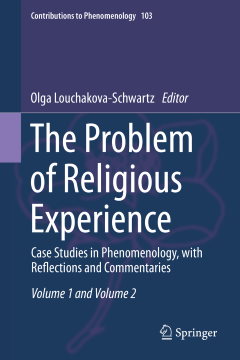The trinitarian manifestation of God in Jean-Luc Marion's phenomenology
pp. 245-255
Abstract
I shall argue here that Trinity is a leitmotiv in Marion's works and that his latest analysis on said concept can enlighten us on the function of the icon and on the structure of his phenomenology of givenness. As such I will argue for a Trinitarian character of givenness. To prove this, I shall structure this paper as a commentary on Givenness and Revelation that will show how this book reveals unclear functions of the Trinity involved in givenness, such as the role of the Holy Spirit, and relate these functions to the strict phenomenological structure of the act of giving. I shall first set the stage for a phenomenological interpretation of Trinity, showing which concepts are at play in Marion's analysis of revelation. This will be followed by the integration of Trinity in the immanent field of phenomenology. Further, I shall show how revelation serves as the model for a new phenomenal logic, and I shall try to explain its manifestation. This will be followed by a presentation of how Marion's new considerations on the topic of revelation can clarify both the role of the given and in addition the role of the subject within Marion's phenomenology of givenness.
Publication details
Published in:
Louchakova-Schwartz Olga (2019) The problem of religious experience: case studies in phenomenology, with reflections and commentaries. Dordrecht, Springer.
Pages: 245-255
DOI: 10.1007/978-3-030-21575-0_15
Full citation:
Șandru Adrian Răzvan (2019) „The trinitarian manifestation of God in Jean-Luc Marion's phenomenology“, In: O. Louchakova-Schwartz (ed.), The problem of religious experience, Dordrecht, Springer, 245–255.


